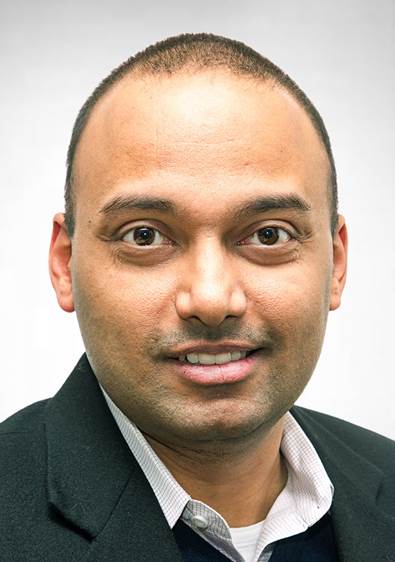24/6/365.
$5.3 trillion per day traded.
Thats the foreign exchange trading market by the numbers, but numbers and data dont always tell the full story. For many years, FX trading was dominated by a handful of banks and custodians who traded on behalf of institutional investors, But this is changing, according to Vatsa Narasimha, Chief Executive Officer of OANDA, the online multi-asset trading services and foreign exchange solutions for individuals and businesses. Narasimha recently spoke to Traders Magazine about the growth of the retail trading sector and the changing face of the industry.
The retail trading industry as we know it today emerged as a result of developments in technology, explains Narasimha. On the institutional side, technology moved trading from the floor of the exchange to the computer screen, and over the last 15 years or so weve seen the same thing happen in the retail trading industry. Increasingly were seeing the use of technology to break down the information arbitrage that used to exist between institutional and retail traders. We continue to arm our clients with order book indicators and sentiment analysis, which provide retail clients with the same comprehensive view of client orders and positions that have long been the reserve of professional FX brokers.

Today, OANDA combines trading technology and institutional-grade execution across a wide range of asset classes, to allow clients to trade global market indices, commodities, Treasuries, precious metals and currencies. However, the company originally began life in 1996 as a small tech firm, built on the belief that the internet and technology would open up the markets to create fair access for everyone.
In 2001 the company launched a platform that helped pioneer the advent of Internet-based currency trading, introducing a host of first to market in the process, such as automated execution, instant settlement on trades, trades of any size between one and 10 million units, and interest calculated by the second.
However, while Narasimha stands proud of the accomplishments his firm have made in terms of democratizing the forex industry, he is quick to assert that there are significant risks associated with currency trading of which retail investors must be made aware. Leveraged trading does carry significant risk, due in large to the fact that rapid market shifts can result in losses that by far outweigh initial investments.
The Swiss National Bank crisis of 2015 offers a perfect example, during which time we saw a seismic shift in the markets in a very short space of time. Within a few seconds of the central bank removing the peg, the EUR/CHF rate dropped by 1,615 pips and USD/CHF dropped by approximately 1,405 pips. While some FX traders were left unscathed, traders long CHF in line with the prevailing long-term trend at the time were hit hard, and anyone leveraged by at least 4 to 1 was wiped out completely. Some traders leveraged by greater amounts found themselves with negative balances, owing their brokers five or even six figure sums well in excess of their deposits.
In light of this, regulators all over the world have turned their attention towards reducing systematic risk caused by leverage in the retail trading industry in recent years. Japan and Korea have both already deleveraged products to protect investors from significant losses, and the UKs Financial Conduct Authority (FCA) recommended traders with less than 12 months trading experience should be limited to 25:1 leverage, while experienced traders are can reach 50:1.
Narasimha adds, We welcome this affirmative stance from the regulators, because we believe its important to create a fair and transparent arena in which retail clients can trade, safe in the knowledge that their best interests are being protected. This goes some way to explaining why weve always been conservative when it comes to margin requirements, often implementing leverage rates that fall short of market regulations to protect our clients. In the coming years, we will continue to support regulators all over the world in their quest to mitigate risk associated with currency trading.
But with so much change taking place in the industry, what does the future hold for Narasimha and the team at OANDA? I believe a host of opportunities remain in the marketplace as a result of technology, and well continue to disrupt things in order to create a more fair and transparent market for our clients, said Narasimha.



